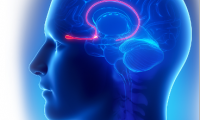-
Coya stretches lead drug’s development to Parkinson’s and dementia
- Source: drugdu
- 120
- January 19, 2024
-
Stem-cell-derived brain cells hold promise for Alzheimer’s, Parkinson’s research
- Source: drugdu
- 114
- November 21, 2023
-
Spinal stimulation implant offers new hope for Parkinson’s disease treatment
- Source: drugdu
- 96
- November 13, 2023
-
Parkinson’s UK calls on government to mark World Patient Safety Day
- Source: drugdu
- 131
- October 1, 2023
-
International survey reveals varying effects of oral medicines for Parkinson’s
- Source: drugdu
- 101
- September 4, 2023
-
Bayer and BlueRock announce positive results from Parkinson’s cell therapy trial
- Source: drugdu
- 101
- September 1, 2023
-
Study reveals gut conditions could be early sign of Parkinson’s disease
- Source: drugdu
- 119
- August 31, 2023
-
Bayer and BlueRock announce positive early-stage results for Parkinson’s cell therapy
- Source: drugdu
- 110
- July 1, 2023
-
Is Parkinson’s disease, ‘world’s fastest growing brain disease,’ mostly preventable?
- Source: drugdu
- 151
- March 30, 2023
-
FDA Approves New Drug to Treat Parkinson’s Disease, Providing Hope for Millions of Patients
- Source: drugdu
- 125
- March 24, 2023
your submission has already been received.
OK
Subscribe
Please enter a valid Email address!
Submit
The most relevant industry news & insight will be sent to you every two weeks.













